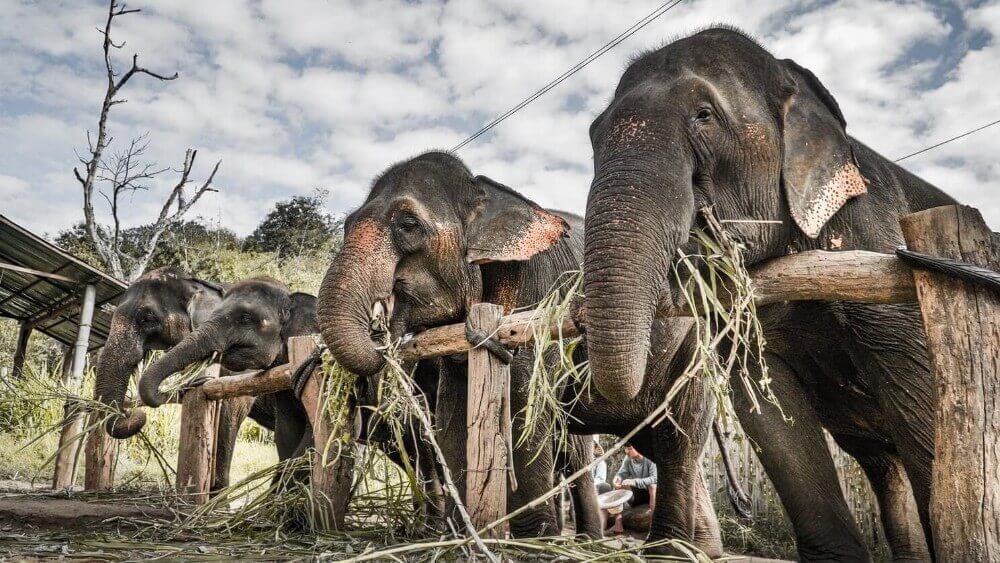Maesa Elephant Park in Thailand has decided that its elephants will no longer give rides to tourists.
The park, located in Chiang Mai, northern Thailand, is currently closed due to the coronavirus pandemic. When it reopens, it will instead focus on educating tourists about elephants.
Owner of the park Anchalee Kalampichit told CNN: “on 23 March I decided to close and asked my staff to keep the seating [for spectators] and put them aside.. we put away everything we used to have for tourists and my announcement to the public is that we will stop from now on shows and riding on the elephants.”
https://youtu.be/4-JIKcX-50k
Instead of giving rides to tourists, the elephants will be allowed to roam freely within the park’s grounds.
According to Kalampichit, this is the first time in 44 years that the elephants have not had to wear their seats.
“Since we entered the business in 1976, riding on the elephants has always been the favorite activity of tourists,” he told the Independent in March. “But because the coronavirus has spread there have been fewer tourists and eventually the government ordered us to close so we have removed the chairs to liberate the elephants.”
“We want to change the style of the place and find more natural ways that the public can enjoy the elephants,” he added.

‘We Will Not Leave Anyone Behind’
Thailand has more than 3,000 confirmed coronavirus cases. The country has currently suspended all international flights.
Until the ban lifts and tourists can begin visiting Thailand again, elephant parks like Maesa will have to fund themselves. It costs around five million baht per month to pay employees and care for the elephants, says Kalampichit.
The owner has taken to growing his own food to keep everybody fed and cut costs.
“We will not leave anyone behind,” said Kalampichit. “[We] will try to take the best care of the elephants for as long as we can. Now we are planting vegetables for the staff to eat as one of the ways we can reduce the expenses.”


